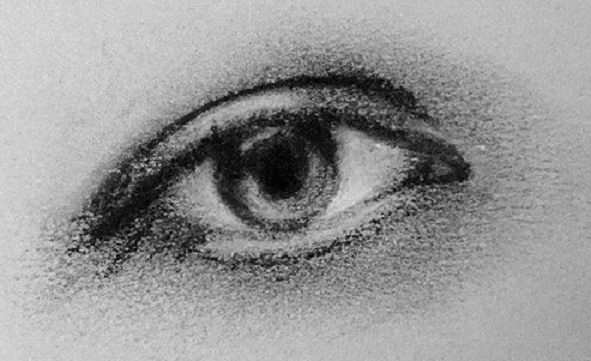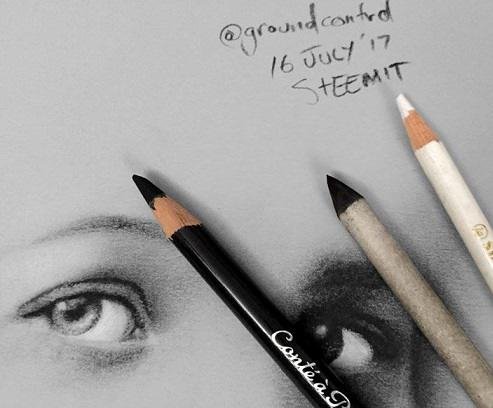Proper eye contact is one of the foundations of proper social etiquette. While we may not always feel comfortable making eye contact, it seems to be quite important for our social success.

Research has shown that even when the eye contact comes from a character on a cereal box it can increase our feelings of trust and connection to the brand, and also makes us more likely to choose that cereal over another brand.(1) Other research indicates that we are more likely to trust people with dilated pupils, and if we match pupil dilation with the people we encounter, it will lead to them being more trusting of us.(2)
I'm not sure if we can really learn to match the dilation of peoples eyes, however, we certainly can pay more attention to it. In fact, paying attention to someones pupils is a good way to determine how long to hold their gaze. According to a recent study by the Royal Society of Open Science,[3] pupil dilation is an indicator of how long an individual feels comfortable holding eye contact. If you make eye-contact with an individual and their pupils dilate then they are likely to feel comfortable holding a longer gaze. On average participants in this study were comfortable with eye contact that lasted just longer than 3 seconds. The range went from 1 to 9 seconds, with no one feeling comfortable with eye contact that lasted over 9 seconds
So when we are interacting with someone, we can shoot for 3 seconds as a general rule for eye contact. If we can remember to pay attention to pupil dilation, we get a stronger clue. All of these facts can be hard to turn into practice, however. It can feel overwhelming trying to remember all of these details and still hold a conversation. Lets try not to over think in the midst of an interaction.
A good rule that can help you to feel comfortable, and present in a conversation, is to generally match the same level of eye contact the other person displays. (4) Matching is actually an invaluable skill in dealing with people that is taught by everyone in the field of influence and persuasion. Learning how to match the body language of the people we encounter can greatly improve how much they enjoy our presence, as well as our enjoyment of the interaction in general. If we are unsure exactly how much eye-contact is just right during a conversation, matching can be a helpful tool. On improveyoursocialskills.comwe are instructed to generally, meet someone's gaze when they meet ours, and look away when they do. Of course, do not do this instantly and mechanically, but casually, with a bit of delay. What you are going for is a similar level of eye contact, not a precise mirror.
Something else to keep in mind is findings from a 2006 study. Their research suggests that when presenting information to someone, holding their gaze for 30% of the time is likely to increase their retention of what you said.[5] So if you have something important to tell someone, make sure to use some eye contact to help them remember.

While we have not comprehensively covered eye-contact in all of our social situations, I do feel like this is a good stopping point, for now. We've covered some tips for how to make appropriate conversational eye contact. For another day will be the topic of making eye contact with people you pass by on the street or in the grocery store. Additionally to be discussed is the role it plays in attraction and romantic situations.
Fun Fact!!!
In a 2015 study by Italian researchers it has been shown that 10 minutes of gazing into another persons eyes can induce "dissociative symptoms and hallucinatory-like apparitions."(6) So, if you want to trip for free, convince one of your friends to dim the lights and get gazing!
References:
- journals.sagepub.com - Why Is Cap’n Crunch Looking Down at My Child?
- journals.sagepub.com - Pupil Mimicry Correlates With Trust
- rsos.royalsocietypublishing.org - Pupil dilation as an index of preferred mutual gaze duration (Found at: digest.bps.org.uk - Psychology of Eye Contact)
- www.improveyoursocialskills.com - How to Make Eye Contact
- www.ncbi.nlm.nih.gov - Effect of gazing at the camera during a video link on recall.
- www.psy-journal.com - Dissociation and hallucinations in dyads engaged through interpersonal gazing (Found at: medicaldaily.com - Eye Contact Alters Consciousness Without Drugs)
Furthur Reading:
NyTimes.com - The Eyes Have It
TheArtOfCharm.com - The Science of Eye Contact and Attraction
Thanks for stopping by, and please share any of your tips with me, or good resources on this topic. :-)
If you enjoyed this post try:
